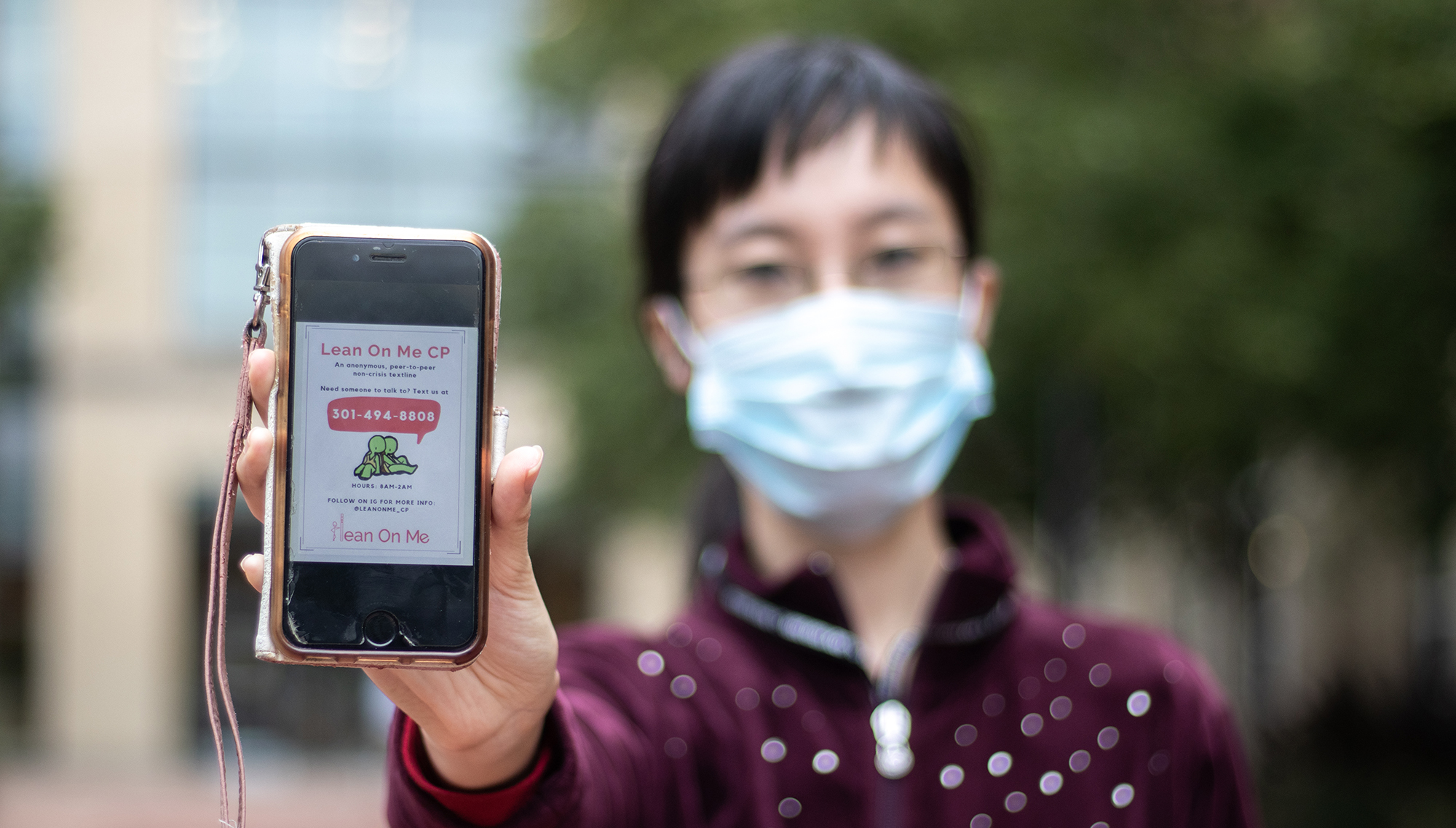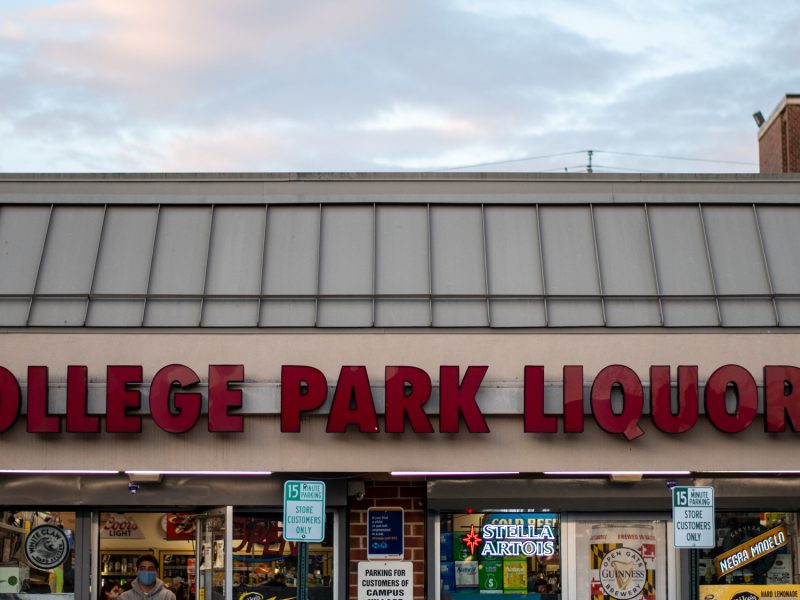When Karen Hao heard the news, she was in shock.
It was three years ago when the then-high school student had learned that a classmate she had tutored tried to jump off the school’s balcony after overdosing on his medication.
“It really just made me realize that a lot of the things that people struggle with really stay internalized, and it’s really hard to kind of recognize those signs sometimes,” said Hao, now a student at the University of Maryland.
Then, when she was a freshman at this university, it happened again — a high school classmate she had known for years died by suicide.
At the time, she had already been talking with fellow then-freshman Tesia Shi about creating a mental health texting service that would allow students to send anonymous messages to a hotline. But at that moment, she knew more than ever that she wanted to be involved.
“A lot of the time, people don’t feel comfortable reaching out to others,” the sophomore accounting and finance major said. “Then over time, it just becomes so internalized that [other] people can’t even read their signs anymore.”
[“On our own”: UMD students with accommodations struggle to adjust to new semester]
Now, more than nine months later, Lean On Me College Park — an anonymous, peer-to-peer text service operating independent from the university — will launch Sept. 21. The service will be open from 8 a.m. to 2 a.m every day, with each of the group’s volunteers taking shifts on designated days.
Originally spearheaded by the Massachusetts Institute of Technology in 2016, Lean On Me is a national service with subgroups at colleges such as the University of Chicago and University of California, Santa Barbara. The service is non-crisis, Shi said, and they hope to help their peers talk through issues such as grief, loneliness and academic stress.
“I just thought it would be a really good addition and would open the door to a lot of people as an avenue to reach out,” said Shi, who is president of the group and has worked with other similar services in the past, such as 7 Cups and the Crisis Text Line.
Lean On Me College Park’s mission, she said, is twofold. The first is to provide a safe space for students, and the second is to increase education and awareness of mental health issues. They’d like to be able to facilitate mental health events and workshops in collaboration with other student groups in the future.
The idea didn’t materialize until last spring, when Shi began sending out student polls and seeking advice from various campus organizations. This summer, she and a fellow student began coaching their team of around 30 students.
“We’ve put in so much work,” Hao said. “I’m just really proud that we were able to come so far.”
Kendra Soh, a senior physiology and neurobiology major, said she became involved with the group not only because she’s always been interested in helping others with their mental health concerns, but because she knows it’s something she would’ve wanted when she was a freshman.
As an out-of-state student, she was shy and would have benefited from being able to talk to a peer about how to make friends and manage schoolwork. Now, she’ll be trying to help students feeling a similar way.
“There were just so many experiences that I’ve had that I didn’t necessarily know how to navigate,” Soh said. “I definitely wanted to be a part of something where I could kind of give back.”
[UMD counseling center braces for uptick in students seeking help during COVID-19 pandemic]
Although students looking to talk to someone on the phone can contact the university’s Help Center, and those who want to talk face-to-face over video chat can go to places such as the Counseling Center, there are many advantages to texting, the group’s leaders said.
Students might not want to talk out loud on the phone if they are in public or their roommate is in the room, they said. And, texting can provide an “additional veil of anonymity” for students, Shi said.
Though they are ready to launch, the team admitted that it wasn’t always smooth sailing. Along with the COVID-19 pandemic making things more hectic, Hao said that going through the approval process with the university was stressful.
Chetan Joshi, the director of the university’s Counseling Center, said he is “cautiously optimistic” that the service will succeed.
When the new organization was first brought up to him, he asked students to look at how much usage the service got at other colleges — and the usage was low. Nonetheless, he is acting as a consultant to the group in hopes of providing them with support.
“We’ll have to wait and see,” he said.
The group decided to press on. They hope that even if students just reach out and talk for a few minutes but find they don’t like it, they at least take the time to try it. They know it won’t work for everyone, but even if it helps just some, it’ll be worth it.
“You won’t know it’s for you if you don’t give it a shot,” Hao said.



